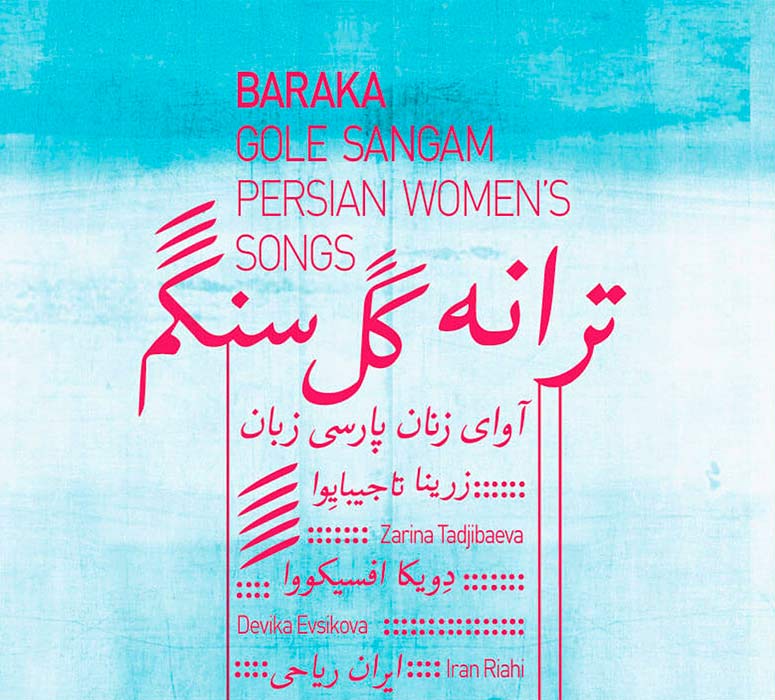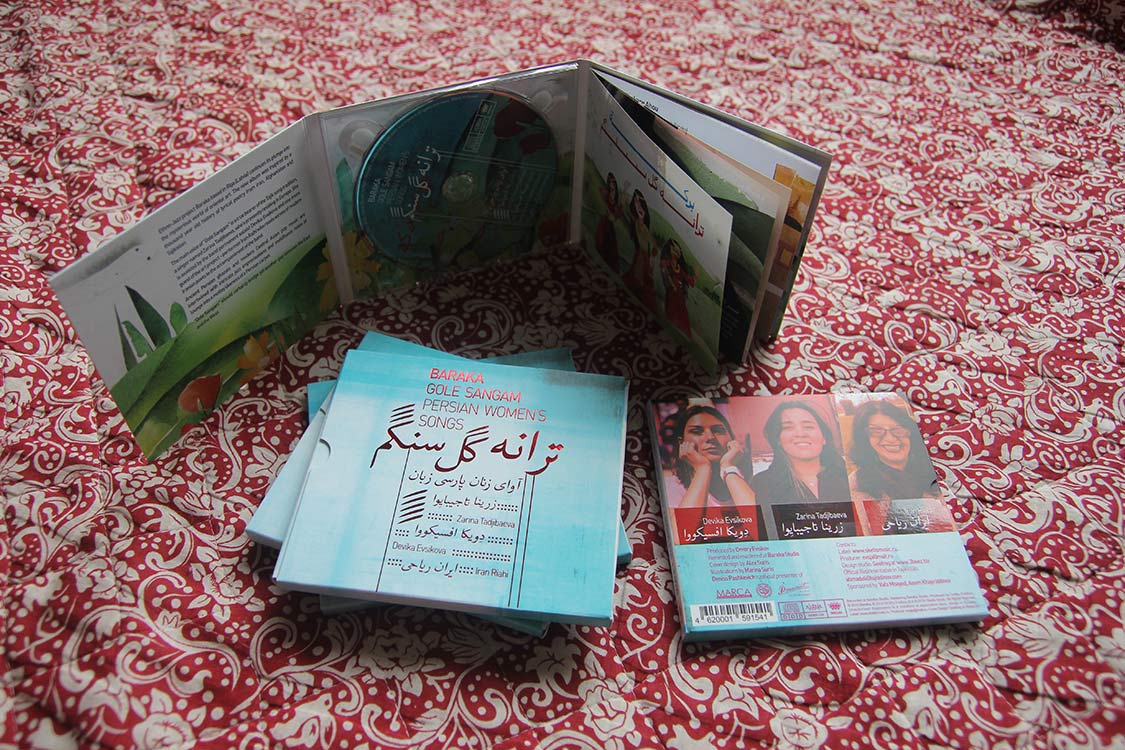Nov 29, 2016
Songs from the album "Gole Sangam" sound in almost every Iranian, Tajik and Afghan home. For the album we have selected the most popular songs, some of them are folk, some pop, but now they all sound different.
How did this album originate, whose idea was it, and how did you begin working on it?
The idea to record an album with songs of women came in 2015, after the publication of a tribute album in memoriam of Ahmad Zahir. Then Zarina Tadjibaeva, who performed three Ahmad Zahir songs, spoke about the album of women’s songs for the first time. We started selecting musical material. Zarina started sending us her favorite Iranian, Afghan and Tajik women's songs, and we listened to them together with Devika, contemplating how to rearrange them. Later, in the late summer of 2015, Zarina arrived in Riga to visit us, and we found ourselves firmly entrenched in the studio. This is how we began work on the album Gole Sangam, and we carried on working for over 8 months.
What features of the album do you think deserve special attention?
The main theme of the album is female vocals, presented by three singers, Zarina Tadjibaeva, Devika Evsikova and Iran Raihi, and each of them has her own role in the project. Zarina performed all the main vocals, Devika sang all the songs that had dialogues in them, as well as all the back vocals and, of course, she played the bass and Chapman stick. Iran Raihi recited poetry by contemporary Iranian poets. The result was a unique art project that embraces jazz, traditional songs, and even spoken word.
This album involved more than 10 musicians. How did you and Devika manage the recording and processing of the compositions?
It was as follows: first we selected the compositions and arranged a minimal skeleton for each of them, recording the rhythm section and the basic chords. At next stage we recorded vocals, as I told you above. After vocals are ready, other musicians, namely saxophone, guitar, trumpet and others start coming to the studio, and after that, we invite the pianist to finalize the composition. This is the routine we follow to record almost everything we do. Since most of the Baraka members are jazz musicians, we try to shape each composition in such a way that everyone finds it easy to improvise. One cannot bypass the fact that improvisation is the foundation of jazz, without it there is no music. And we also follow this tradition.
How did you meet Zarina and Iran Raihi?
Zarina first worked with us when we did our second album, and we were very pleased to scout her out and collaborate with her. For us Zarina is a true representative of the Tajik traditional culture, and it is she who creates genuine ethnic sound. This is key attraction to our eastern fans. Today, even though a lot of listeners in the sunny Tajikistan know us, for them we are not much more than curious and not always comprehensible European team. For the Central Asian audience, jazz improvisation is not as familiar as it is for us in Europe. Zarina we invest with the role of the cultural ambassador from Europe to Asia, as what we do is we build a bridge that works both ways, presenting Tajik music here in the North and jazz culture in the East. Iran Raihi plays a unique and I dare say most artsy part: she chose the best contemporary love poems and read them in a Swiss studio, later we picked that up and came up with background music for them.
What inspired you while working on the album? Who do you think is its target audience?
We are completely free to express ourselves, and of course we could make compositions in any style, but most of all we gravitate towards pure ethno-jazz with lounge elements. We constantly listen to new music, all the latest jazz releases, and a lot of traditional music from all over the world. We try to discern developing trends in other musical styles. This is what makes me hope this album will be relevant for many years.

Zarina Tadjibaeva:
I am very glad I had this chance to have recorded the album with the Baraka, who collected some of my favorite Persian songs. Since I live in Europe it is very important for me to show to the Europeans the traditional Tajik culture as it is, and the guys from the Baraka were of great help to me in this endeavor. Recording Gole Sangam was full of events and moments of joy. Together with Devika we studied the Persian lyrics, I translated and explained their meanings. Also, there was an unforgettable trip to Riga to record the album. In Riga, I had an amazing stay at Dima and Devika’s place, where we recorded the vocals.
Dmitry Evsikov:
Songs that we collected in Gole Sangam are a natural part of everyday life in almost every Iranian, Tajik, or Afghan home. For this album, we selected the most popular songs, some of them were originally traditional, some pop songs, but now they all sound different. The traditional component was preserved thanks to Zarina’s singing and traditional instruments as Indian sitar and tabla, but in almost every composition there are a lot of jazz vibes, presented by the overdose of saxophone, the guitar improvisations, and every piano note.
